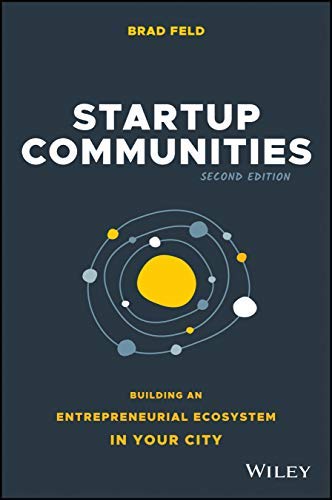The most interesting thing about the book is the way the authors see startup communities as complex systems and their recommendations based on that. There are many actors (entrepreneurs, VCs, workers, policy makers, educators, college graduates, cultural leaders, social leaders, residents, etc.) and factors (people, technology, money, institutions, economy, policy, history, culture, environment, exogenous shocks, etc.) in startup communities, and the way the actors and factors interact with one another complex, so is their aggregate influence on the system. Complex systems have the following characteristics:
1. They cannot be controlled. The relationships between the parts of the system and their aggregate influence are nonlinear. There is thus inherent uncertainty in the outcome of complex systems. In the case of startup communities, that means you cannot create a startup community by merely investing in local startups or encouraging young people to jumpstart startups; nor can you know for sure that improving labor policies will increase local talent pool by x percent. Trying to design the system from top-down often does not work. The way complex systems evolve is often a bottom-up process.
2. Complex systems cannot be fully understood. The causal relationships are complex, non-linear, and fuzzy. Modeling the system and making predictions are difficult.
3. The interactions between parts of the system is more important than the parts. Systems improve by changing the connections, not the parts. This is an important overarching philosophy of the book. How different actors interact with one another is more important than tangible and measurable parts of the system. Contagion or the spreading of ideas, mentalities, and behaviors can happen.
4. Progress is uneven, slow, and surprising. Complex systems evolve slowly; often times no change happens immediately. However, once the system arrives at a tipping point, things may change drastically. The cumulative effect of small actions can lead to big change.
5. There is simplicity in the complexity. Although at the aggregate level the system is complex, at the micro-level each individual may be following a simple rule (e.g. be giving and helping to others).
6. Complex systems can be guided and influenced. One needs to embrace uncertainty and experimentation when trying to influence or guide complex systems.
Based on those characteristics, the authors put forward several actionable suggestions for building strong startup communities:
1. Give up the illusion of control. Get comfortable with uncertainty. Trust the process. Trust emergence.
2. Embrace experimentation. Experimentation is fundamental to entrepreneurship. It is also fundamental to the creation of startup communities. Keep running small scale experimentations—many will fail, but some will work.
3. Leadership is key. Entrepreneurs must lead the process and do it proactively. Other actors are feeders who can contribute to the process.
4. Take action. Do little things. Little things make big things happen. Don’t wait or ask for permission.
5. Give first.
6. Make long-term commitment. Commit at least 20 years to build a startup community. Think in generations.
Clearly, the authors value intangible, mental qualities of startup communities much more than tangible qualities. They have a cool iceberg model (p.217) and a cool lever model (p.222). The models show their rankings of relative importance of different qualities of startup communities. The iceberg model posits that activities < trends < structure/behavior < worldview/mentality ( “<” means is shallower/less substantial than). Similarly, the lever model posits that the conscious lever (culture, mindset, attitudes, values, worldview) is the most powerful lever, followed by the social lever (rules, norms, incentives, goas, structures), the information lever (information flows, data, feedbacks, connectivity), and the physical lever (tangible assets and resources, infrastructure). And the most important thing—mentality—is about what assumptions, values, and beliefs one holds. Whether or not one is willing to give, to share with others, and to believe that it is a positive sum game and together people can make a difference can shape norms, institutions, structure, behavior, and trends tremendously.
Personally, I find the complex systems thinking applicable to guiding my personal life as well. Someone famous once told me that one could set her destination (in a fuzzy manner) but could not plan out every detail of the course. I find it increasingly true. We live in a complex system. Our life is subject to the influence of the environment, opportunities, shocks, chance encounters, etc. It is very difficult to control everything or engineer outcomes linearly. That said, I find I can still do things to guide my life. And over time, I see drastic changes and progress, although there are certainly bumps and surprises along the journey. I learnt that the key is to trust the process and keep going. I think the major contribution of the book is offering such a perspective for understanding startup communities. And the recommendations are actionable even at the very individual level. The authors’ experience in participating in shaping up-and-coming startup communities for over twenty years gives them some firm grounding in writing this book. I would recommend the book to anyone looking for insights on startup communities.

